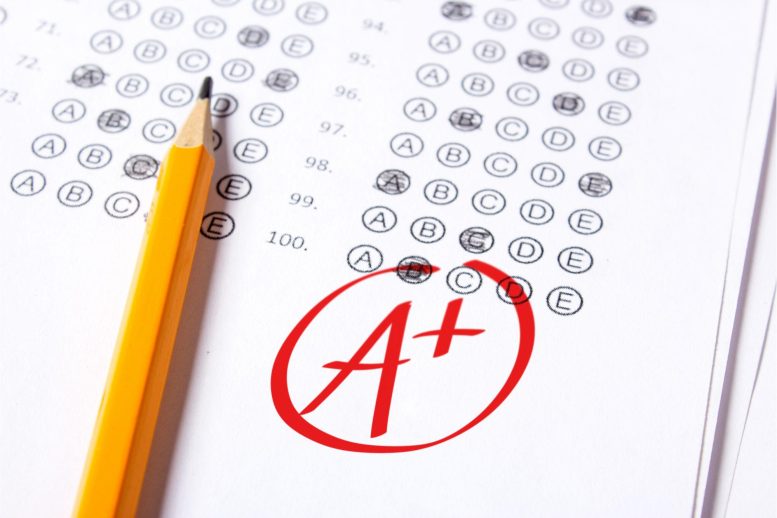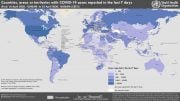
The study found that students in Muslim countries demonstrated improved performance after an intensive Ramadan fasting period compared to a less intense Ramadan.
A recent study, which involved Konstanz economist Guido Schwerdt, has found that longer daily fasting periods during Ramadan have a beneficial impact on the academic performance of Muslim youth after the fasting month.
Each year, over one billion Muslims observe the fast during Ramadan, the ninth month of the Islamic calendar. Along with refraining from food and drink between sunrise and sunset, many participants increase their engagement in social activities during this time, such as breaking the fast with loved ones, friends, and the community after evening prayers.
Economists from Konstanz, Cologne, and Bern have recently concluded in a study that the social aspects of Ramadan, specifically, seem to have a beneficial effect on the academic performance of adolescent followers. The findings of the research were published in the Journal of Economic Behavior and Organization.
Improved performance through increased social capital
In the study, the researchers examine the question of whether Ramadan fasting has an effect on the school performance of eighth graders that lasts beyond the fasting period and whether this effect is related to the intensity of fasting. Their finding: Although the physically demanding fasting is known to have negative effects on concentration during the fasting period, students in Muslim countries performed better in the international school performance survey TIMSS (Trends in International Mathematics and Science Study) after intensive Ramadan fasting than after a less intensive Ramadan.
Because more intensive fasting is also associated with increased participation in religious activities such as religious services, the authors suggest that the increased school performance is due in particular to the social aspects of fasting. “Our research suggests that engaging in religious practice promotes the formation of a shared identity among school students and increases social capital that is useful for educational success. This includes, for example, contact with other young people of higher socio-economic status, support and assistance, or recognition and knowledge,” specifies Guido Schwerdt, professor in the Department of Economics at the University of Konstanz.
Why Ramadan as a case study?
As the Islamic calendar and the solar calendar differ, Ramadan takes place a few days earlier each year in the solar calendar. Since the length of the day depends on the season, daily Ramadan fasting hours also vary from year to year. “This results in natural variations over the years in the intensity of fasting among believers in a given region, which we linked to school performance data collected after each Ramadan,” Schwerdt explains.
The analysis of the multi-year TIMSS data revealed in detail that increased fasting intensity is associated with better school performance in countries with a majority Muslim population. In countries where the majority are non-Muslim, there was no such effect. “Using multi-year PISA data from eight Western European countries, we were additionally able to show that adolescents with parents from countries with a Muslim majority performed better on the PISA test in years with longer daily fasting relative to other adolescents than in years with low fasting intensity,” Schwerdt adds. This effect is greater in schools with a high proportion of Muslim students than in schools with a lower proportion – another indication that the social aspects of religious activity and the formation of a common identity play a role here.
Reference: “Religious practice and student performance: Evidence from Ramadan fasting” by Erik Hornung, Guido Schwerdt and Maurizio Strazzeri, 18 November 2022, Journal of Economic Behavior & Organization.
DOI: 10.1016/j.jebo.2022.10.025
The study was funded by the German Research Foundation (DFG) within the framework of the Excellence Strategy.








Excellent news! It may be fasting but the statistics may be skewed, however, due to Islamic schools excluding women as students, and killing the gay ones. Either way, German schools can begin to see this improved school performance.
Oh yes, I remember these students: perhaps their grades improved but the grades of everyone falling victim to the moods of these hungry zealots definitely did not.
The author clearly received money from the petro states who follows the pedophile Mohammed. In any good country where those fasting beggars are minority live in slums and polish shoes, why if they are so talented Mr. Muhammed Guido Schwerdt?? You christian like kissing arab shoes for money
3 people from 3 different cultures and backgrounds full of hatered. Sadly, can’t stand the truth and facts. And awesome language, shows your standard.
It’s not hatred. Hatred would be silently letting people go down the wrong path. Criticism can be love, not for some superstition, but for people like you. Don’t expect a passive welcome of religious superstition on a Science Tech website, or for pathetic propaganda masquerading as bad science.
If you want truth, science won’t give you that directly, but it’s the best way of knowing we have. If you’d like facts, search “Does Terrorism Really Increase During Ramadan?” (Suat Cubukcu, Brad Bartholomew. June 11, 2018); They found that while terrorist incidents overall dropped 3% during Ramadan (or 2% in “Religion and Terrorism: Evidence from Ramadan Fasting” (Hodler, Racschky, Strittmatter. November 18, 2019)), jihadist organizations increased their mass terrorist attacks 27% during Ramadan. That’s not good! And it makes this study veryworthy of criticism…unless this study’s authors will say fasting is linked to better jihadist performance too?
Economists can’t do science. This study confuses conclusions with speculations. Assuming that their data is correct, this study only shows that Muslim students do better after Ramadan than after other months. The rest is speculation. Especially since Muslims then should have an about 10% advantage in inventions and Nobels, which they do not. Overall a shoddy piece of work.